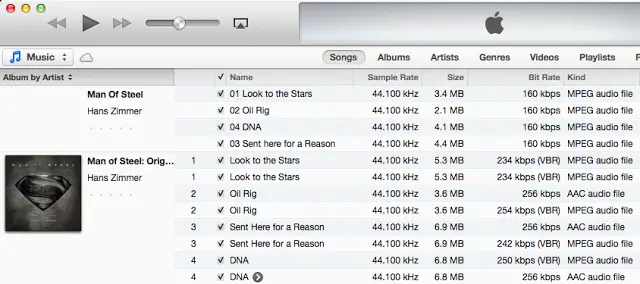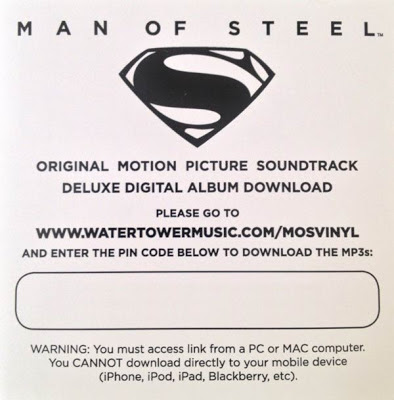Nowadays, when you purchase many vinyl albums you get a free digital (MP3) version of the album. I had this recent experience with two movie albums that I purchased: The Dark Knight and Man of Steel. I purchased both on Amazon (I’m sorry record store day, but the beloved vinyl store near us closed!).
I was recently playing the Man of Steel vinyl
as a result of these recent posts. As I was sitting and listening, something struck me as to just how good the vinyl sounded. This wasn’t some sort of audiophile zealous opinion of vinyl vs. digital. The overall smoothness of the audio, the detail, tonality—it just sounded very natural.
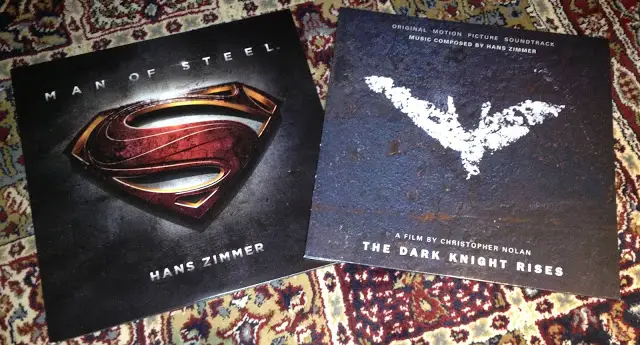
For about the past month plus, I’ve been listening to the digital MP3 version from Amazon. In case you’re not aware, when you purchase an album on Amazon, you now get a digital version of that album. I began to wonder if the Amazon MP3 version was somehow encoded at an inferior bitrate and this was somehow contributing to the digital being inferior.
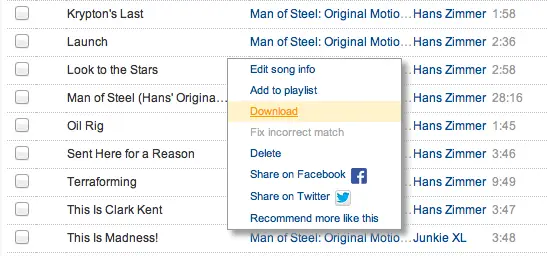 |
| I’ve been listening to the tracks that I downloaded from the Amazon Cloud.
|
That question in my mind about the MP3 file led me to get around to pulling out the digital download coupon that came with the album. The coupon gives you a code that allows you to download an MP3 version of the album. In this case it’s
www.watertowermusic.com/mosvinyl.
I entered in my product code and downloaded the album. I was expecting that I’d notice a difference between the Amazon and Water Tower Music versions. I did, but it wasn’t at all what I was expecting. The Amazon MP3 files were larger than the Water Tower Music MP3 files. That warranted investigation. My initial hunch was that I likely had one must encoded at a different bitrate (the larger file at a higher bitrate and the smaller file a lower bitrate or the difference was due to one being a VBR (variable bitrate) file and the other as a CBR (constant bitrate) file.
I was surprised. Sorry, I was
shocked to see that the difference was due to both. The Amazon version was encoded as a VBR. The exact bitrate varied from 237 kbps to 257 kbps depending on the individual track. The Water Tower Music version was encoded at only 160 kbps CBR! Wow. Not only was the Amazon version encoded at a better bitrate but it was also encoded with (I would argue) a better compression scheme since VBR allows you to vary the compression depending on the complexity of the piece. To oversimplify VBR, you can have less compression with more complex parts and more compression with simpler parts.
I then went one step further and launched iTunes. I’m an iTunes Match subscriber, so I uploaded the album to the iTunes cloud and I was able to re-download it as an AAC file. How did that match up? Well, iTunes beat everyone. The iTunes version was a 256 kbps AAC audio file. The AAC codec is generally regarded as a superior codec to MP3.
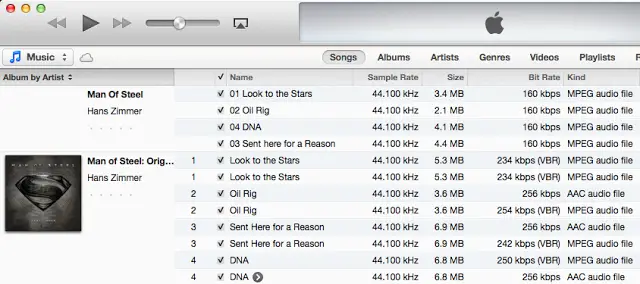 |
| The top songs are the 160 kbps downloaded with the album code. The songs below are a mix of the Amazon MP3 VBR files and the iTunes Match 256 kbps AAC |
I went under the hood a bit more and wanted to see if there were any fingerprints left on the encoder used. Sure enough, with the Water Tower Music version, I found the fingerprint of iTunes 11.0.2. iTunes was used to process the files that you download from the Water Tower Music site.
I have nothing against iTunes, but because you’re using iTunes it would have been far better to have used 256 kbps MP3 VBR as an encoding output option. Amazon left no fingerprint as to what encoder they used—and of course, I have no idea what either Amazon or iTunes source file was.
I’ll write my thoughts further in the next post. But here’s the bottom line: if I’m buying vinyl, can I please at least get a great quality digital file to go along with it? If I spent the money to support the vinyl purchase, why am I not treated to a superior digital experience as well?




